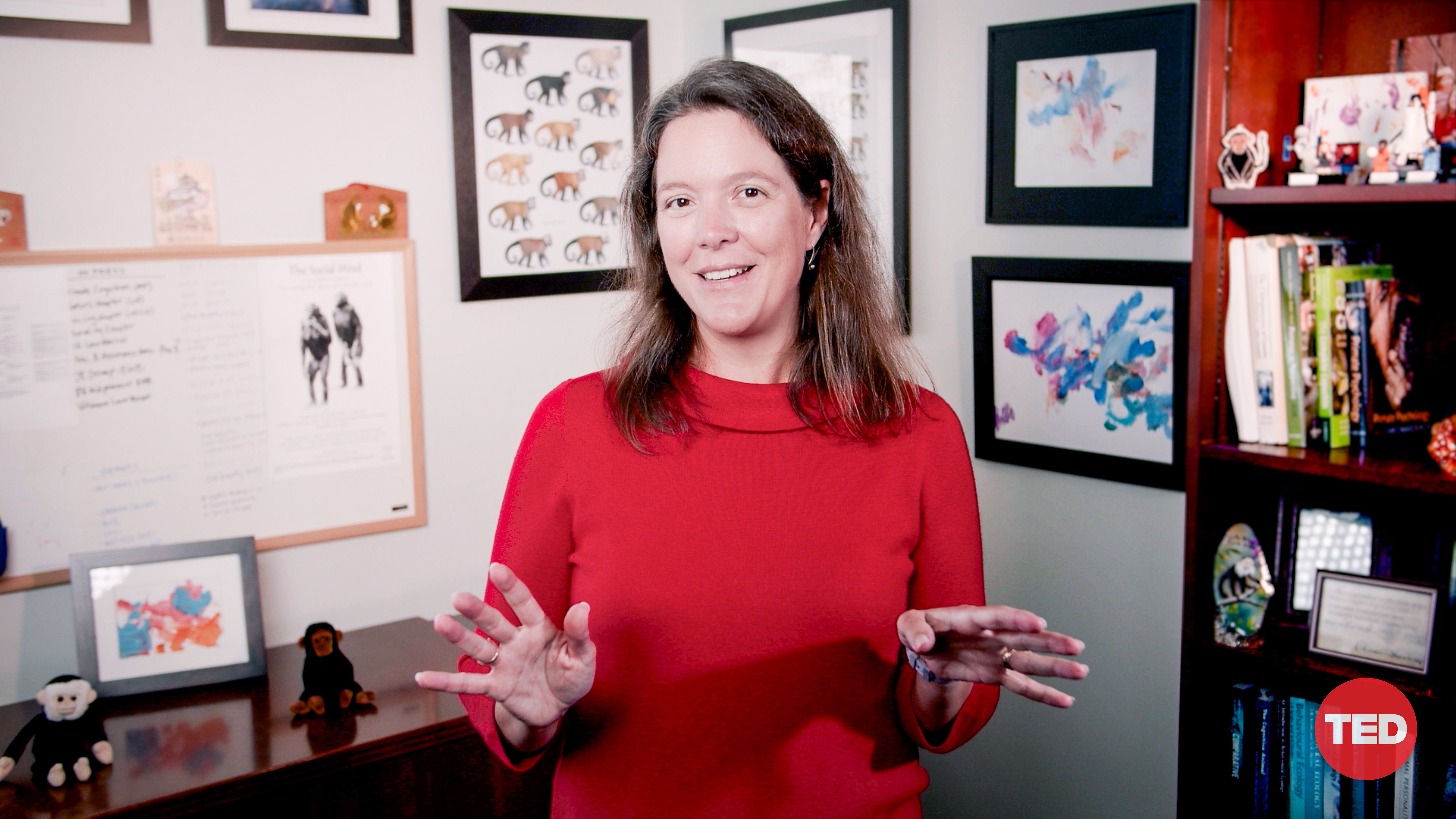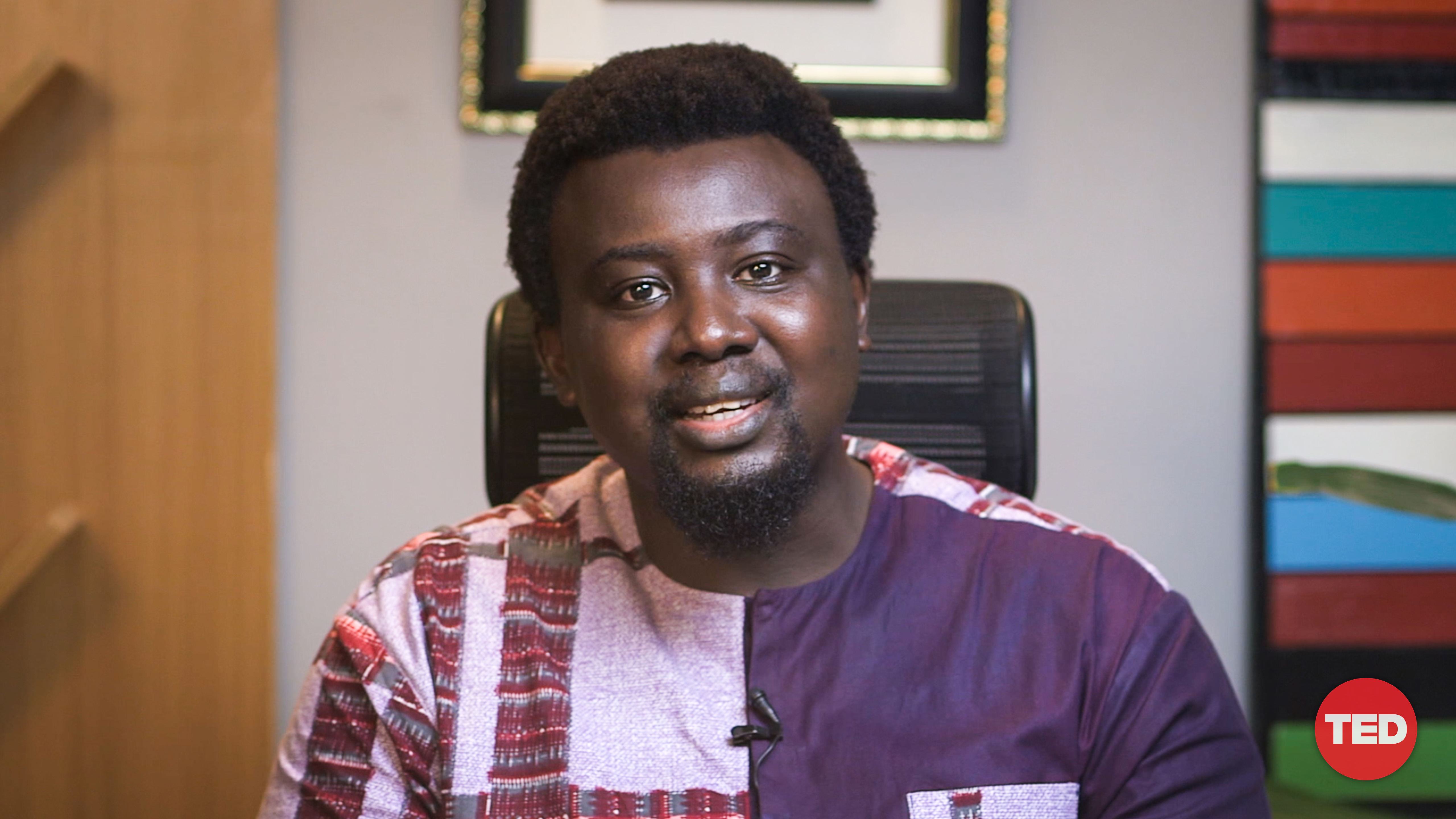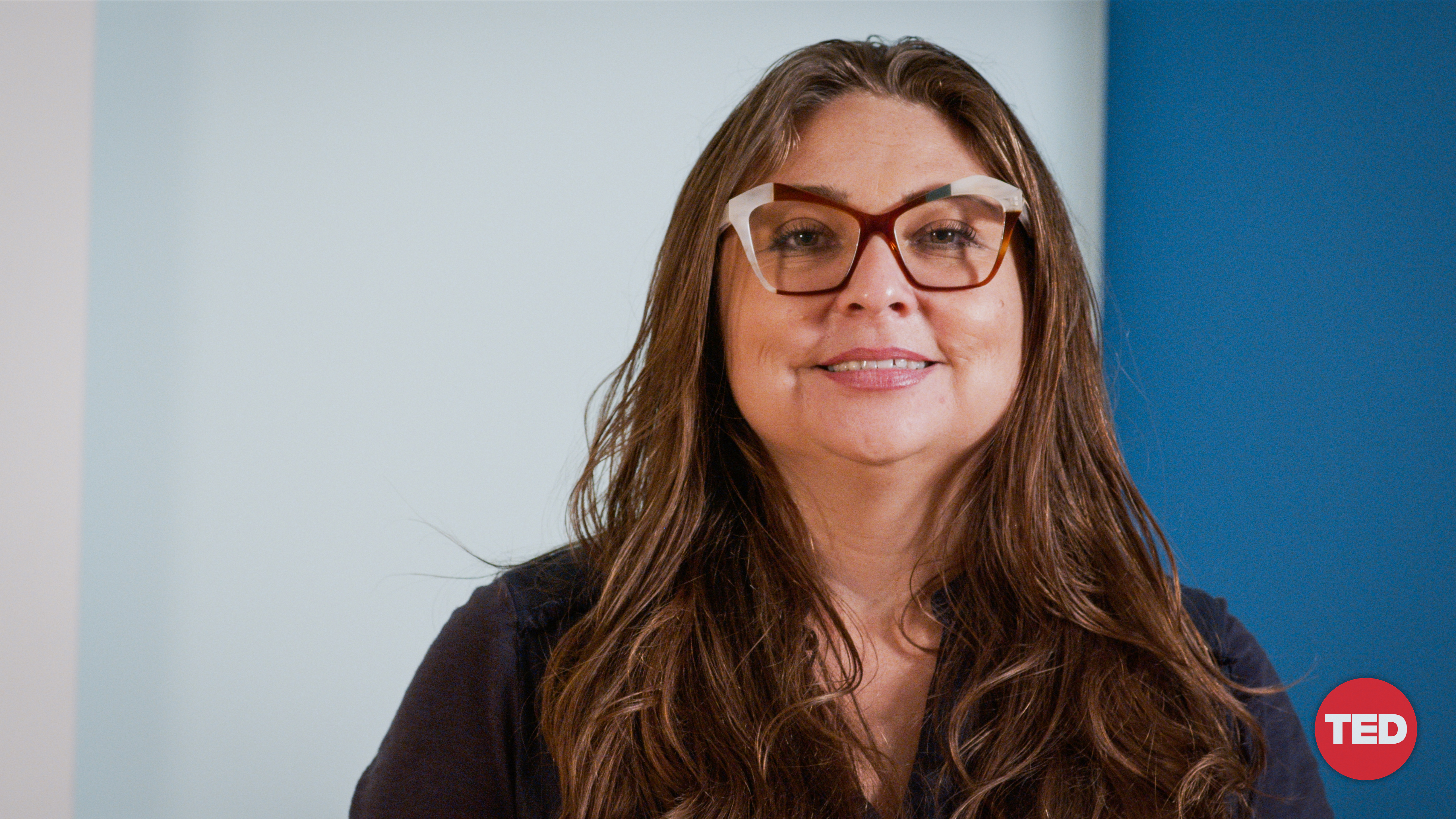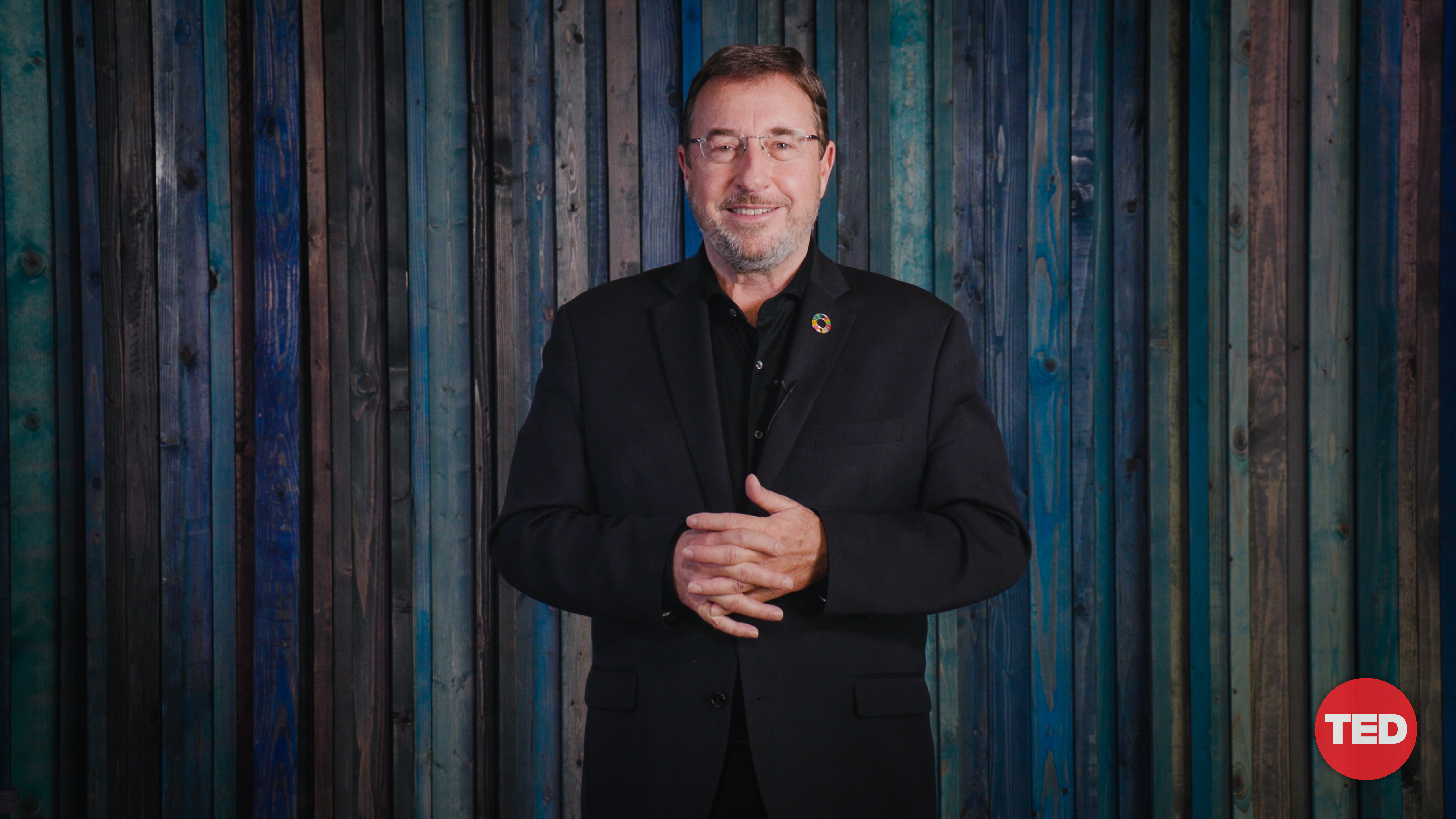How do we ensure that tomorrow is better than today, not just for ourselves but also for future generations and the entire planet? Fairness is ultimately the central challenge of sustainable development — development that benefits all, without harming or leaving any behind. At TED Salon: Fairness and Our Future — a virtual program presented in partnership with the United Nations Development Programme (UNDP) and hosted by TED curator, writer and activist Sally Kohn and Special Advisor, Strategic Planning & Innovation, UNDP Joseph D’Cruz — four speakers explored the intersection of development and fairness, asking us all to imagine what truly shared prosperity and possibility looks like.
The talks in brief:

“We evolved to care about fairness because we rely on each other for a cooperative society,” says primatologist Sarah Brosnan. She speaks at TED Salon: Fairness and Our Future, in partnership with the UNDP, on December 9, 2020. (Photo courtesy of TED)
Sarah Brosnan, primatologist
Big idea: The value of fairness transcends species. Much like capuchin monkeys, humans evolved to care about equality because society is fortified by cooperation — and we all do better when everybody plays fair.
Why? In her time studying and interacting with capuchin monkeys, Sarah Brosnan and her graduate adviser, Frans de Waal, performed a simple study: they sat two monkeys, Lance and Winter, side by side, and gave them rewards in exchange for tokens. Lance traded tokens for cucumbers and Winter traded for grapes. In the hierarchy of monkey preferences, a grape is a better reward than a cucumber — but still, Lance was happy with her trade until she saw Winter start receiving grapes instead of cucumbers. After observing that Winter’s trade deal was different from her own — and feeling a sense of unfairness — Lance began to throw her cucumbers away. A similar pattern of behavior can be observed in humans, too, whether it’s a child getting a smaller piece of cake than her sibling or an employee making less money than his coworkers. Amazingly, across primates the same holds true for the opposite situation: we also care when we get more than others for doing the same task. Why? Because humans are interconnected and interdependent, and we recognize the importance of cooperative partnerships where everybody gets their fair share. Without cooperation, the whole system falls apart, Brosnan says. This evolutionary pull towards fairness extends far beyond the lab and underpins our fight for racial justice and equitable access to resources. The issues humans face are far more complex than cucumbers and grapes, but if capuchin monkeys can teach us anything, it’s that we evolved to care about fairness — and we rely on each other to prosper.

“Inequality must be seen as the global epidemic that it is,” says tech inclusionist ‘Gbenga Sesan. He speaks at TED Salon: Fairness and Our Future, in partnership with the UNDP, on December 9, 2020. (Photo courtesy of TED)
‘Gbenga Sesan, tech inclusionist
Big idea: We must eradicate inequality by giving everybody fair access to technology.
How? Centuries of inequality can’t simply be solved with gadgets — we need to supply training and resources that fully level the playing field, says ‘Gbenga Sesan. That’s why he started the Paradigm Initiative, to help those in his native Nigeria learn how to use technology in a way that sustains their hopes and dreams and ultimately leads to greater development for the entire African continent. In creating systemic solutions for tackling the inequality that 40 percent of the world experiences, Sesan seeks to create lasting fairness for all by offering the opportunities, support and equal advantages for the next generations to succeed.

“Desperate times can lead to beautiful, strategic and innovative solutions,” says climate justice leader Angela Mahecha Adrar. She speaks at TED Salon: Fairness and Our Future, in partnership with the UNDP, on December 9, 2020. (Photo courtesy of TED)
Angela Mahecha Adrar, climate justice leader
Big idea: Corporations and big business helped create the climate crisis — but frontline communities are leading the world to clean, innovative and just climate solutions.
How? All over the world, low income and BIPOC people disproportionately live in so-called “sacrifice zones”: urban areas polluted and poisoned by industry and corporate greed. These frontline communities bear the brunt of disastrous environmental changes they did not cause. Since economic and racial injustice helped create climate change, climate solutions must include economic and racial justice, says Angela Mahecha Adrar. She believes frontline communities are the key to developing innovative, effective solutions that deliver climate justice. For example, Cooperativa Tierra y Libertad, a local farm co-op in Washington State, is breaking into the United States’s multibillion-dollar berry business. The co-op renews land, pays its workers $15 an hour and has plans to create energy-efficient worker housing and community spaces. Like Tierra y Libertad, frontline communities across the globe are standing up to big business by creating climate solutions tailored to their neighborhood’s needs.

“Our challenge is to come together to preserve our collective self-interest and humanity, rather than tearing ourselves asunder,” says sustainability champion Achim Steiner. He speaks at TED Salon: Fairness and Our Future, in partnership with the UNDP, on December 9, 2020. (Photo courtesy of TED)
Achim Steiner, sustainability champion
Big idea: The dominant risk to humanity’s survival is … humanity itself. But across the world, people are choosing to do things differently and writing a new, sustainable and equitable chapter for people and the planet.
How? Achim Steiner, head of the UNDP, traces the origins of the United Nations back to the effort to build peace out of the ashes of World War II. Now, he says, another kind of war is brewing — one we’re waging against ourselves. In the current geological age of the Anthropocene, humans have the unprecedented power to shape the planet — for better or worse. We’ve achieved great things (like eradicating smallpox), but we’ve also taken humankind and many other species to the brink, a reality reinforced by the coronavirus pandemic. In order to survive and prosper, we must choose to do things differently. So what’s the path forward? Steiner takes us on a global tour of individuals and societies that are building a better future. For example, Costa Rica abolished its army in order to redirect military spending to education, health and the environment (including paying people to regenerate forests); Denmark has committed to producing all of its electricity from renewable sources by 2050; and Bhutan measures its progress based on gross national happiness, rather than GDP. These are but a few examples of people working to put the planet back in balance. Though we are different, Steiner says, we must choose to be united in building lasting, sustainable peace.